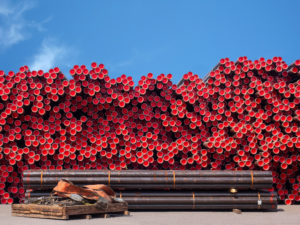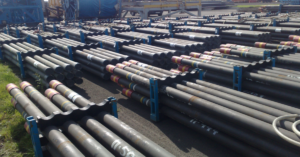Oil shale production and the local (US) oil shale industry get a significant boost from rising oil prices. This is due to increased attention and subsequent demand being placed on the country as a result of being seen (or sourced) as a viable crude oil alternative. Consequently, the success and boom of the industry is heavily dependent on the price of crude oil remaining relatively high. Therefore, whenever there is a fall in the price of crude oil (per barrel), there will be less attention being placed on making use of alternative crude oil sources such as oil shale. The fallout from this can be quite significant with some of the repercussions including loss of jobs.
Reduced Oil Shale Production And Loss Of Jobs
Naturally, if the demand for shale is reduced due to low crude oil prices (or any other factor for that matter), then persons within that industry will lose their jobs on account of a reduction in production. Of course, the effect of reduced production and job loss not only affects the shale reserves industry directly, but it also affects other industries and the local economy as a whole. This kind of far reaching effect is due to the fact that all sectors of the economy are related and intertwined. As such, when persons’ spending powers is reduced due to losing their job, they have less disposable income to spend into said economy. This reduced spending power will result in a reduction in the currency turnover in the local economy, inadvertently affecting other sectors.
Thread Protectors Manufacturers And Reduced Oil Prices.
Another sector of the economy that may be directly affected by reduced crude oil prices is the oil country tubular goods market (OCTG) which manufactures products such as thread protectors. OCTG manufacturers in the oil country tubular goods depend on the demand for shale and other oil and gas reserves which in turn depend somewhat on high oil prices to remain competitive as the interest in digging for and exploring shale reserves is likely to peak at this time. On the other hand, when crude oil prices are reduced (as well as the requisite demand for shale), then the OCTG manufacturers industry is likely to take a hit. That is, the sale of goods in that market suffers on account of any reduction in production.
The subsequent reduction in oil shale and OCTG will naturally result in slowed production and less revenue. The decrease in revenue can have a ripple effect on the economy similar to the one described above. Thankfully, the OCTG manufacturers can still enjoy some measure of stability (and even growth) due to the fact that there are other oil related activities (offshore and otherwise) from which the industry benefits. OCTG manufacturers stand to benefit from the overall demand for energy and technology in other sectors. This demand is likely to help the OCTG industry stay stable and continue to grow even at times when the demand for oil shale is relatively low.
Though what lies ahead may be a little daunting, we at MSI aren’t worried. We’ll keep on trucking as always, continuing to make the best pipe protection technologies the industry has to offer. Contact us today!




